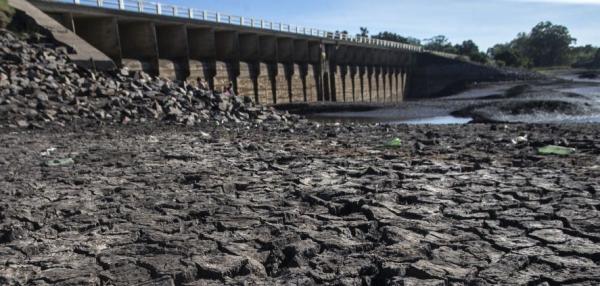Uruguay Declares Water Emergency
26 Jun 2023 by The Water Diplomat

Uruguay President Luis Lacalle Pou declared a state of emergency in the capital Montevideo on the 20th of June following drops in the levels of the city’s supply reservoir. Uruguay is currently facing its worst drought in 74 years. The city of Montevideo relies for its water supply on the Paso Severino Dam which has a potential storage capacity of 70 million m³, but dams levels have been dropping and reached just 4.6 million hm³ in early June, or 6.6% of total capacity. Water managers at the Aguas Corrientes water treatment plant which supplies potable water to the department of Montevideo have resorted to mixing water from the Paso Severino reservoir (fresh water) with water from the lower section of the Santa Lucia River, which has higher salt content. The utility submitted an application to the Ministry of Public Health to request permission to temporarily exceed the maximum salinity levels in the drinking water. In May, the authorities raised the limit for sodium in the water by 160%.
The water crisis prompted protests in Uruguay against the government’s handling of the drought as well as the salinity levels in the water. Labour Unions pressed the government to reduce water prices, as purchases of bottled water skyrocketed in the city.
According to a rapid attribution study conducted by the world weather attribution service, climate change is only partially to blame for the extreme weather conditions. South America has been suffering from a prolonged drought for the last three years, primarily induced by the recent La Niña event. In July 2022, the World Meteorological Organisation (WMO) produced a State of the Climate in Latin America and the Caribbean report which highlighted – amongst other issues – the drought in the Paraná–La Plata Basin. This drought has been the worst since 1944 and has affected many sectors, including agriculture, inland water navigation, energy production, and water supply as well as ecosystems.
